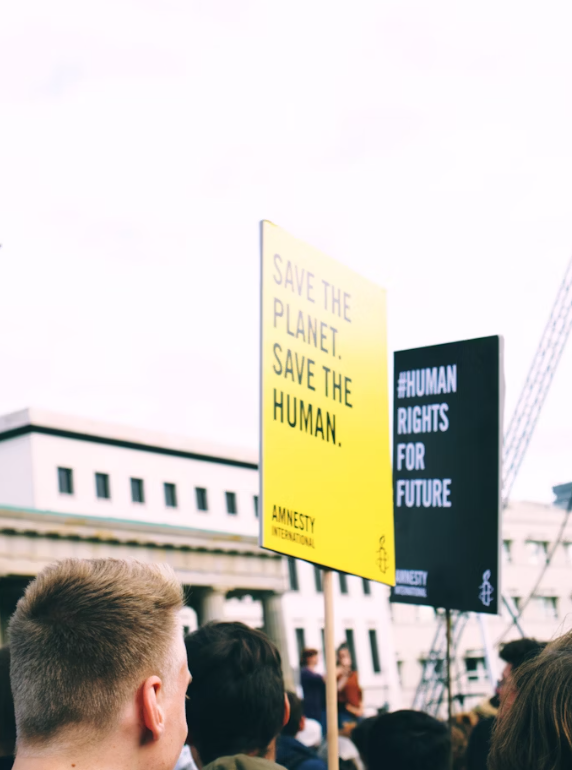Our phones, computers and electric vehicles all rely on the same foundation: strategic minerals — cobalt, nickel, lithium and coltan.
They are essential to the technological transition, yet behind these resources lies a much darker reality: forced labor, child exploitation, displacement of communities and the financing of armed groups.
The progress we expect from the transition cannot be built on human rights violations. This major social issue is one we choose to confront rather than look away from.
A Social Impact We Rarely See
Most of these minerals come from high-risk areas where poverty, corruption and political instability fuel every kind of abuse.
In the Democratic Republic of the Congo — which provides nearly 70% of the world’s cobalt and a significant share of its coltan — extraction is often artisanal and carried out in deplorable conditions:
-
work without any protective equipment, sometimes by children;
-
exposure to toxic dust;
-
deadly collapses inside narrow tunnels;
-
violence by armed groups controlling certain mining areas.
Coltan used in smartphones, computers and game consoles — has become the symbol of this issue.
Its trade sometimes fuels conflict, just like gold, tin or tungsten, all classified as conflict minerals. These trades perpetuate a cycle of violence and poverty, while thousands of workers risk their lives every day.
And this reality extends far beyond Congo’s borders:
-
Our work depends on technology. This gives us both a direct and indirect responsibility for the conditions in which these minerals are extracted.
Regulations on corporate due diligence are tightening, but beyond the law, this is a matter of consistency:
you cannot defend strong social values here while turning a blind eye to what happens there.This is also a vision of a contributive society: one that recognizes and takes responsibility for its externalities, maximizes its positive impacts and reduces the negative ones — a society that reconnects businesses with Society itself.
Today, we cannot guarantee that the IT equipment we use is entirely free from human exploitation.
This is why we chose to take action alongside those who have spent years investigating, alerting and defending workers on the ground.

Our Partnership with Amnesty International France
Since 2025, we have established an official partnership with Amnesty International France.
It is built on two pillars:
-
a 4- to 8-week audit conducted by Amnesty’s teams to analyze our practices and validate our eligibility for the partnership;
-
financial and operational support for their advocacy work defending human rights in technological supply chains.
We have added concrete commitments to continuous improvement:
-
integrating social indicators into our strategic purchasing;
-
implementing a whistleblowing mechanism on our website, accessible to all stakeholders;
-
strengthening anti-corruption measures, notably through our membership in the Forum des Entreprises Engagées — because without corruption, there is no “dirty money,” and thus fewer risks of exploitation.
This commitment does not protect us — it binds us.
It pushes us to question our own practices, demand the same rigor from our partners, and be transparent about both our progress and our limitations.
No organization, however virtuous, is perfect.
But in this area, imperfection is not an option: innovation has no meaning if it rests on the suffering of those who make it possible.
Maëliss Delacroix
Head of Social Impact & CSR Labels
TO GO FURTHER
Because it is essential to understand what lies behind our screens, here are some resources to explore the topic:
Readings / Reports
Amnesty International France:
Article from Sustainability Magazine: Amnesty International: The Human Cost Behind Clean Energy
https://sustainabilitymag.com/articles/the-link-evs-the-cobalt-rush-unrest-in-drcc-csddd
DRC – industrial mining & human rights violations (cobalt/copper):
https://www.amnesty.fr/presse/rpublique-dmocratique-du-congo-lextraction-industr
“Les petits forçats du cobalt” (report on Kolwezi):
https://www.amnesty.fr/actualites/republique-democratique-du-congo-enfants-cobalt-face-cachee-de-nos-batterie
Conflict in Eastern DRC & the role of coltan:
https://www.amnesty.fr/conflits-armes-et-populations/actualites/republique-democratique-du-congo-les-civils-en-danger-alors-que-le-conflit-sintensifie-dans-lest-du-pays
General reference: 2025 Report — The State of Human Rights Worldwide
https://www.amnesty.org/fr/documents/pol10/8515/2025/fr/
OECD — Due Diligence Guidance for Responsible Minerals (PDF):
https://mneguidelines.oecd.org/Guide-OCDE-sur-le-devoir-de-diligence-pour-des-chaines-d-approvisionnement-responsables-en-minerais.pdf
Business & Human Rights Resource Centre (FR) – Dossier H (report + timeline):
https://www.business-humanrights.org/fr/derni%C3%A8res-actualit%C3%A9s/rdc-selon-un-nouveau-rapport-lextraction-industrielle-de-cobalt-et-de-cuivre-entraine-de-graves-atteintes-aux-droits-humains/
Documentaries / Films
ARTE — “Cobalt, The Hidden Face of the Electric Dream” (2022, 86 min):
https://www.arte.tv/fr/videos/093032-000-A/cobalt-l-envers-du-reve-electrique/
France 24 — Coltan, Bloody Trade (dossier & updates):
https://www.france24.com/fr/%C3%A9missions/dans-la-presse/20250604-rdc-les-for%C3%A7ats-du-coltan-%C3%A0-l-ombre-des-fusils-du-m-23?utm_source=chatgpt.com
Le sang et la boue – film co-funded by our partner Impact Film
https://www.allocine.fr/film/fichefilm_gen_cfilm=300431.html
Reference Websites & Resources
Amnesty International France → campaigns and actions on human rights and corporate responsibility
https://www.amnesty.fr
Global Witness → investigations on corruption and exploitation of natural resources
https://www.globalwitness.org/fr/
Human Rights Watch → regional reports on forced labor and human rights violations
https://www.hrw.org/fr/blog-feed/la-rd-congo-en-crise
Business & Human Rights Resource Centre → global database on corporate practices and litigation
https://www.business-humanrights.org/fr/
